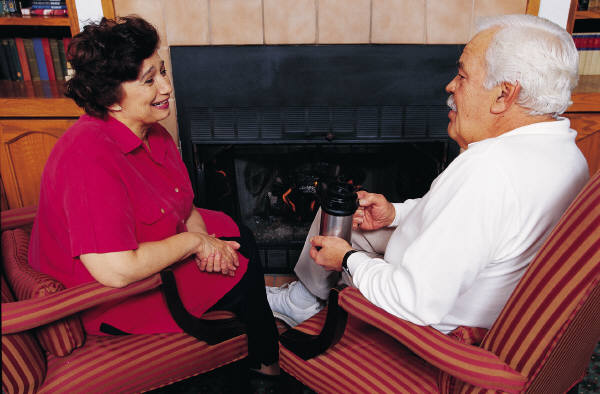
“Perhaps one of the most difficult conversations you’ll have as an adult child, is talking about end of life preparations with your parent. For many seniors, this conversation is as hard as the one about having to move to a full-time care facility.”
An aging parent’s health can fail suddenly, or they can have a fall that will unexpectedly put them into a precarious state. Therefore, it is vitally important that legal and medical arrangements be made, while they are still well enough to be an active participant in decisions, advises TAP into Roxbury in the article “Putting Together a Plan of Care“. Here are the steps to get you started:
- Advance Directives: These documents spell out their wishes regarding future medical care and treatment, and financial affairs, if they are no longer able to speak or make decisions on their own behalf.
- A Living Will is used in some states to specify in advance whether or not they want to have medical treatment, like a feeding tube, ventilator, or heart machine to prolong life, when death is inevitable.
- A Health Care Proxy appoints another person to make medical decisions, if the person becomes incapacitated.
- A Power of Attorney names someone who will be able to make decisions about their finances, pay bills, and manage real estate and other assets.
- A Last Will and Testament provides information about what they would like to happen to their assets upon their demise and names an executor who will be in charge of carrying out their wishes.
- Copies of medical insurance cards and any other insurance information, if emergency treatment is needed.
- A Do Not Resuscitate (DNR), if they do not wish to be brought back to life during a medical emergency.
- A list of medications they are currently taking, as well as doctor’s names and contact information.
- A list of professionals, including their estate planning attorney, CPA and financial advisor, and all contact information.
Having all these documents prepared in advance of any emergency will be helpful even if they are ever needed. Keeping them in a safe and accessible location where they can be obtained quickly in an emergency is also important. Do not put them in a safe deposit box which may be sealed upon their death.
Be aware that some seniors are reluctant to have these discussions, although they may be more comfortable having them with a person outside the family, like an estate planning attorney.
Reference: TAP Into Roxbury (October 7, 2019) “Putting Together a Plan of Care”
For more information on elder law and estate planning, please visit my estate planning website.











